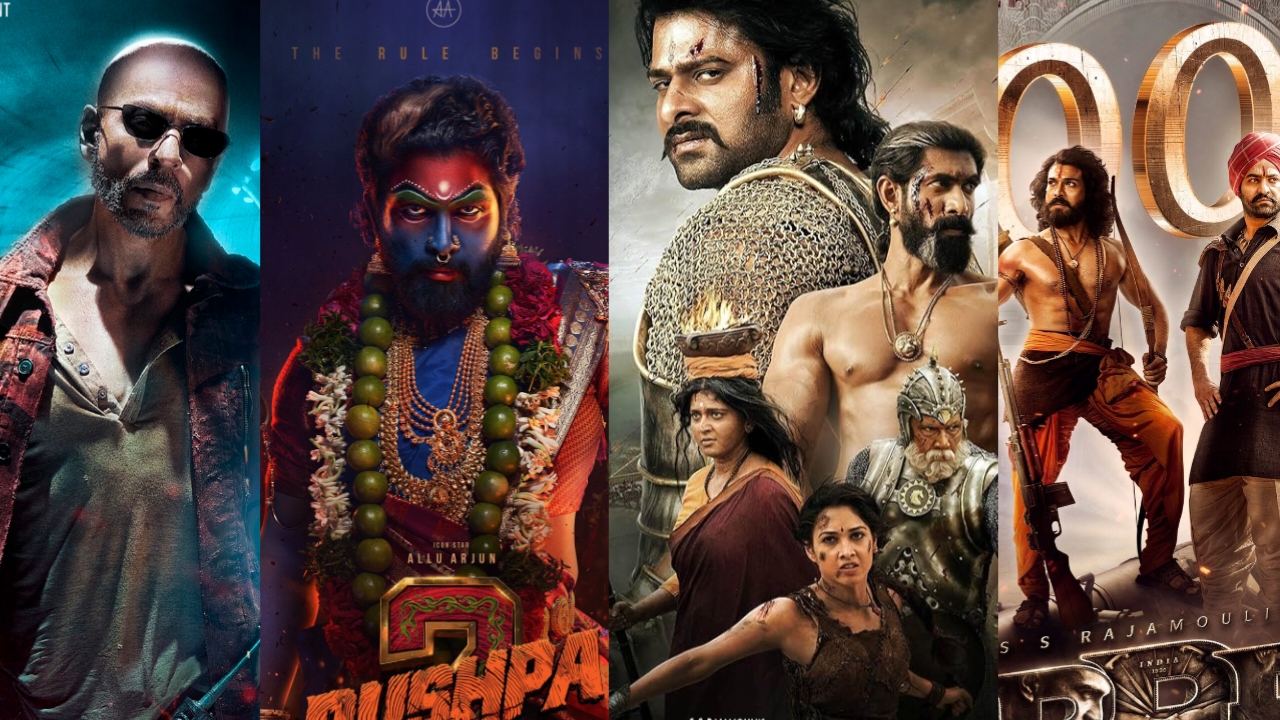India’s First Film to Earn Rs 100 Crore Before Release: Marakkar – Lion of the Arabian Sea
The Indian film industry has been experiencing a paradigm shift in recent years, evolving rapidly with the emergence of pan-Indian cinema. While the dominance of Hindi films was once unparalleled, the rise of South Indian cinema has transformed the landscape of Indian entertainment. Films like Baahubali, RRR, KGF, and Pushpa have redefined success at the box office, breaking records nationally and globally. However, one film set a unique milestone by earning Rs 100 crore even before its release—Marakkar: Lion of the Arabian Sea.
Released in 2021, Marakkar not only created ripples in the Indian cinema industry but also marked a significant turning point for its producers and distributors. Originally planned for an OTT release, the film’s theatrical debut proved to be a groundbreaking decision. Let’s delve deeper into the journey of Marakkar: Lion of the Arabian Sea and its impact on the Indian cinema industry.
The Genesis of Marakkar: A Dream Project
Directed by Priyadarshan, Marakkar: Lion of the Arabian Sea was a historic drama that depicted the life of Kunjali Marakkar IV, a legendary naval chieftain of the Zamorin of Calicut. Known for his valiant fight against Portuguese invaders in the late 16th century, Kunjali Marakkar’s story was an ambitious project brought to life with grandeur and precision.
The film starred Malayalam cinema’s megastar Mohanlal in the titular role, supported by an ensemble cast, including Arjun Sarja, Suniel Shetty, Manju Warrier, Pranav Mohanlal, Keerthy Suresh, Ashok Selvan, Prabhu, and others. From the very beginning, Marakkar was envisioned as a cinematic spectacle that would bring history to life with exceptional storytelling, breathtaking visuals, and a massive scale.
Challenges Faced During Production
The production of Marakkar began with lofty goals, but it was not without challenges. Initially slated for release in March 2020, the film faced repeated delays due to the COVID-19 pandemic. The lockdowns and restrictions on theater operations made the box office environment unfavorable for a big-budget film like Marakkar, leaving its producers grappling with difficult decisions.
The uncertainty of the pandemic pushed producer Antony Perumbavoor to consider an OTT release. Streaming platforms had become a lifeline for filmmakers during the pandemic, and releasing the film digitally seemed like a safer financial choice. However, this decision met with resistance from various quarters of the film industry.
A Turning Point: The Decision to Release in Theaters
The pivotal moment came when Saji Cherian, Minister for Film Development Corporation and Chalachitra Academy, intervened. He convinced the producers to release Marakkar in theaters, arguing that the film industry needed a blockbuster to revive post-pandemic. The producers eventually decided to take the leap of faith, and Marakkar was slated for a theatrical release in December 2021.
The decision to release the film in theaters proved to be a masterstroke. Even before its theatrical debut, Marakkar created an unprecedented buzz, earning Rs 100 crore through advance bookings and distribution rights. This achievement made it the first Indian film to reach this milestone before its release.
The Grand Release and Unprecedented Success
When Marakkar finally hit the big screens on December 2, 2021, it was released across 4,100 screens worldwide. The film’s grandeur, coupled with Mohanlal’s star power, drew audiences in droves, and it received a thunderous response at the box office. While the critical reception was mixed, the sheer scale of the film’s release ensured its commercial success.
Marakkar’s music, composed by Rahul Raj and Ankit Suri, and cinematography by S. Thirunavukarasu, added to its appeal. The film was praised for its production design, visual effects, and action sequences, which were on par with international standards.
Breaking Barriers: The Rise of Pan-Indian Cinema
The success of Marakkar underscored the growing trend of pan-Indian films. Historically, Indian cinema was divided along regional lines, with Hindi films dominating the northern belt and South Indian films catering to specific linguistic audiences. However, films like Baahubali, RRR, KGF, and Pushpa changed this dynamic, creating a new category of cinema that transcended linguistic and cultural boundaries.
Marakkar: Lion of the Arabian Sea was part of this wave, proving that Malayalam cinema could also deliver pan-Indian blockbusters. The film’s success paved the way for other Malayalam movies to target wider audiences, boosting the industry’s confidence in tackling ambitious projects.
The Legacy of Marakkar
Despite its challenges and mixed reviews, Marakkar remains a landmark film in Indian cinema for several reasons:
- Box Office Milestone: Becoming the first Indian film to earn Rs 100 crore before release is a remarkable achievement that highlights the potential of advance bookings and pre-release distribution rights.
- Theatrical Revival: The film played a crucial role in reviving the theatrical business post-pandemic, inspiring other filmmakers to embrace the big-screen experience.
- Cultural Impact: By telling the story of a historic hero, Marakkar celebrated Indian heritage and brought a relatively unknown chapter of history to mainstream audiences.
- Technological Excellence: The film set new benchmarks for visual effects, production design, and action choreography in Malayalam cinema, raising the bar for future productions.
The Changing Dynamics of Indian Cinema
The success of Marakkar is part of a larger trend in Indian cinema, where regional films are gaining national and international recognition. The rise of OTT platforms has played a significant role in this transformation, exposing audiences to diverse storytelling styles and languages.
At the same time, the theatrical experience remains irreplaceable for certain films, especially those with larger-than-life narratives like Marakkar. The film’s journey from being an OTT prospect to a theatrical blockbuster highlights the enduring appeal of the big screen.
Conclusion
Marakkar: Lion of the Arabian Sea will always be remembered as a trailblazer in Indian cinema. Its journey from production delays to earning Rs 100 crore before release and its eventual box office triumph is a testament to the resilience and vision of its creators. The film not only cemented Mohanlal’s status as a megastar but also showcased the potential of Malayalam cinema on a global stage.
As Indian cinema continues to evolve, the legacy of Marakkar serves as an inspiration for filmmakers to dream big and take risks. With the industry embracing diversity and innovation, the future of Indian cinema looks brighter than ever.













